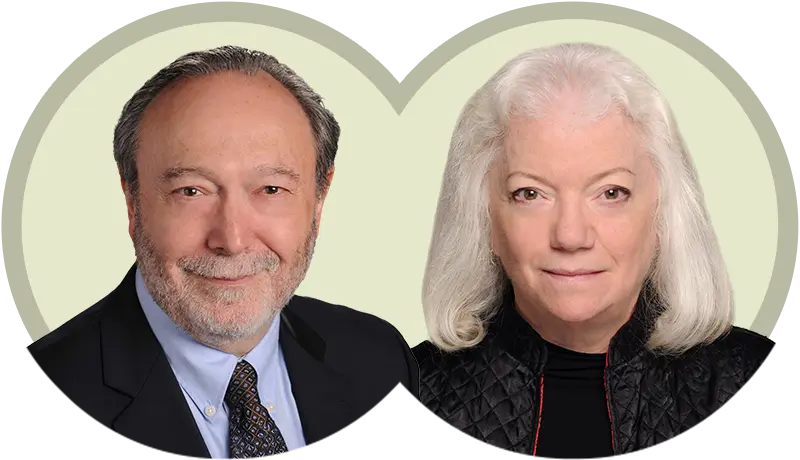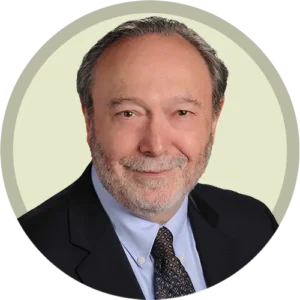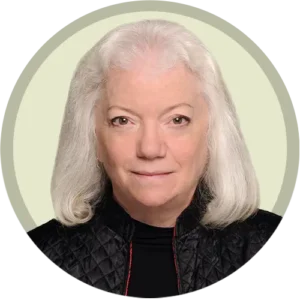
The Neurobiology of Connection and Safety in Therapy
Stephen Porges and Sue Carter Live Legacy Interview
Deb Dana
For more timezones click here
2 hour CPD/CEU certificate and related resources are included
*If you're unable to make this time, a recording will be made available to ticket holders
Join us for a special Live Legacy Interview exploring the life and work of Dr Stephen Porges and Dr Sue Carter, pioneering researchers whose theories have deeply influenced our understanding of how our nervous systems impact mental health, emotional regulation, and human connection.
We’re also delighted to be joined by Deb Dana, a leading clinician and author whose work has brought Polyvagal Theory into the heart of therapeutic practice. Deb has worked closely with Stephen Porges over many years to develop accessible and practical applications of the theory in clinical settings. She will bring a vital clinical lens to this conversation, especially around the role of safety, co-regulation, and therapeutic presence.
Stephen, Sue, and Deb’s work bridges the gap between neuroscience and therapeutic practice, offering us powerful frameworks for understanding trauma, attachment, and the biological foundations of social engagement that can transform clinical approaches to mental health treatment.
Switch currency:
If you have any issues with booking, email website@mindinmind.org.uk
Stephen Porges & Sue Carter
 Stephen Porges, developed the groundbreaking Polyvagal Theory, which has fundamentally changed how we think about the autonomic nervous system’s role in emotional regulation, social connection and trauma. He is Distinguished University Scientist at Indiana University and founding director of the Traumatic Stress Research Consortium.
Stephen Porges, developed the groundbreaking Polyvagal Theory, which has fundamentally changed how we think about the autonomic nervous system’s role in emotional regulation, social connection and trauma. He is Distinguished University Scientist at Indiana University and founding director of the Traumatic Stress Research Consortium.
 Sue Carter is an internationally recognised expert in behavioural neuroendocrinology and was the first scientist to identify the physiological mechanisms of social monogamy through her pioneering research on oxytocin. Her work has reshaped our understanding of this hormone beyond its reproductive functions to include its crucial role in social bonding, stress regulation, and emotional wellbeing across the lifespan. She is Distinguished University Scientist and Rudy Professor Emerita of Biology at Indiana University.
Sue Carter is an internationally recognised expert in behavioural neuroendocrinology and was the first scientist to identify the physiological mechanisms of social monogamy through her pioneering research on oxytocin. Her work has reshaped our understanding of this hormone beyond its reproductive functions to include its crucial role in social bonding, stress regulation, and emotional wellbeing across the lifespan. She is Distinguished University Scientist and Rudy Professor Emerita of Biology at Indiana University.Together, their research reveals how our biological systems underpin our capacity for connection, resilience, and wellbeing. Their personal partnership mirrors their professional one—both have dedicated their careers to understanding how our physiology shapes our psychological ability to connect with others and navigate stress.
During this special event, they will share how their personal and professional journeys have intersected, from Sue’s experiences with motherhood that sparked her scientific interest in oxytocin to Stephen’s development of Polyvagal Theory through clinical observations and neurophysiological research. They’ll discuss how their complementary perspectives have enriched both their research and therapeutic applications.
Stephen Porges and Sue Carter will be in conversation with Jane O’Rourke, Child, Adolescent and Family Psychotherapist and former BBC Producer.
Clinical Applications
Their combined work has profound implications for therapeutic practice, including:
- Understanding trauma responses through the lens of autonomic states rather than conscious choice
- Recognising safety and safeness as a biological imperative for outcomes and therapeutic connection
- Implementing interventions that strengthen the nervous system’s capacity for co-regulation and self-regulation
- Using the principles of neuroception to understand client experiences of threat detection and safety
- Applying knowledge of oxytocin’s (and its partner vasopressin) role in attachment to therapeutic relationships
- Understanding how early life experiences shape autonomic regulation throughout life
- Developing trauma treatments that acknowledge the body’s defensive responses, not just cognitive processes
- Recognising how the social engagement system can be supported and recruited for therapeutic change
- Incorporating practical, polyvagal-informed tools and language into therapy to support clients in mapping, tracking, and shifting their autonomic states
Stephen and Sue’s research provides frameworks for practitioners across mental health disciplines, linking neurobiological mechanisms with observable behaviours and emotional states. Integrating their approaches offers us a biological foundation for understanding the full spectrum of human connection—from bonding and love to defensive states and responses to trauma.
We’ll explore the fascinating intersections of their research, including:
- How oxytocin interacts with the vagal system to promote calm states and social engagement
- The neurobiological underpinnings of therapeutic presence and co-regulation, and how they can be fostered in the therapy room
- The impact of early caregiving experiences on both autonomic regulation and oxytocin systems
- Applying their complementary theories to understand developmental trauma and relational difficulties
- The role of both the endocrine and nervous systems in forming and maintaining secure attachments
- How their research explains the importance of face-to-face connection in therapy and the creation of safety cues
- The relationship between defensive autonomic states and disruptions in oxytocin signalling
- The clinical use of polyvagal mapping and state awareness to support emotional regulation
- The evolutionary perspectives that inform both their theories of human connection
This event offers a rare opportunity to learn from two pioneering scientists—and a leading clinician—whose work has helped transform our understanding of human connection. For mental health professionals, this is a chance to gain both deep insight into the science and practical tools to support recovery and connection in therapeutic relationships.
About MINDinMIND
What makes MINDinMIND events unique is our distinctive approach to bringing you insightful conversations with renowned clinicians and thought leaders in mental health. As former journalists turned psychotherapists, we draw on our skills in deep listening and storytelling to connect the threads of personal and professional experiences that have shaped our guests’ work and their clinical legacies, preserving their wisdom for current and future generations of mental health professionals.
Interviewer/Host
 The event will be hosted by Jane O’Rourke.
The event will be hosted by Jane O’Rourke.
Jane is a Psychodynamic Child, Adolescent and Family Psychotherapist and former award-winning BBC Producer, and founder of MINDinMIND. She creates rich, multi-layered conversations through carefully crafted live interviews with luminaries such as Arietta Slade, Anne Alvarez, Alicia Lieberman, Beatrice Beebe, Patrick Casement, and Miriam Steele. MINDinMIND’s in-depth approach helps to create a special feel to our live events, producing original, thoughtful and at times deeply moving conversations with our visionary legacy interviewees. We deepen these conversations with the inclusion of special guests chosen by our interviewees for the support or inspiration they have offered over their careers, creating a rich, multi-faceted exploration of their work and ideas—bringing to life not just the clinical work but the person behind it as well.
Event Timezones
UK | 7.00–9.00 PM
US (Eastern) | 2.00–4.00 PM
US (Central) | 1.00–3.00 PM
US (Pacific) | 11.00 AM–1.00 PM
Canada (Toronto) | 2.00–4.00 PM
Canada (Vancouver) | 11.00 AM–1.00 PM
AUS (Western) | (May 1) 2.00–4.00 AM
AUS (Central) | (May 1) 3.30–5.30 AM
New Zealand | (May 1) 6.00–8.00 AM
Payment options
MINDinMIND has no income stream, and we depend on donations and ticket sales to keep putting out content like our Legacy Interviews.
Choose Tickets
If you have any issues with booking, please email website@mindinmind.org.uk
Please do get in touch if you are living and working in a Low Income country as we have special discount codes available.
If you are experiencing financial hardship and wish to attend we have a number of sponsored tickets:
Keep informed
Be part of our community by subscribing to our email updates below. Stay informed about upcoming interviews, research, and webinars.

